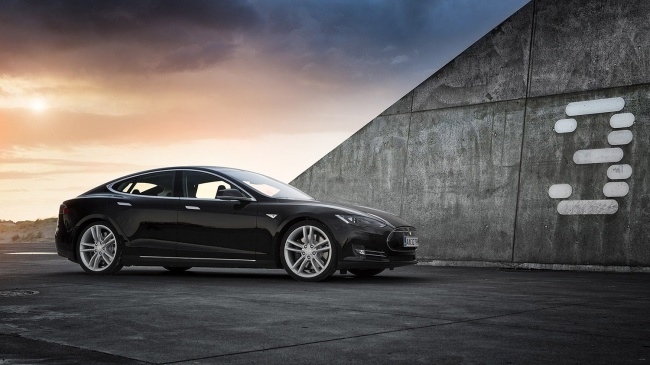The entry of Tesla Motors Inc.'s more affordable electric vehicle into South Korea next year is expected to boost domestic demand for EVs considerably in light of sharp consumer interest in the envisioned model, an expert said Monday.
US electric car maker Tesla is slated to unveil the Model 3 in late 2017, which is capable of traveling more than 340 kilometers before being recharged and is estimated to have a price tag of $35,000, nearly half the price of its flagship and luxury Model S.
 |
(Tesla) |
The Model 3 is reported to have clinched more than 300,000 preorders globally, garnering huge popularity among motorists.
In a report on the domestic EV market, Lee Hang-ku, a researcher at the state-run Korea Institute for Industrial Economics and Trade, said the Model 3 will likely spark domestic competition for electric cars and consumer interest.
"The launch of the Model 3 in South Korea is expected to contribute significantly to a boost of domestic demand for EVs," Lee said. "It will also intensify competition among EV makers and pique consumer interest.
Tesla plans to launch its first South Korean dealership in a new shopping mall south of Seoul later this year in an effort to sell its globally famous EVs to local customers.
South Korea's top automaker Hyundai Motor Co. has also launched its electric car, the Ioniq Electric, which is known to be capable of traveling up to 191 kilometers on a single charge, which is better than the 100 km range of other EVs on sale here.
The expert, however, said Tesla will face some hurdles to its foray into the South Korea market, including on-time delivery of parts and poor related infrastructure in the country.
"In South Korea, an average 17.1 electric cars must use a single recharging station, while two EVs rely on one charging station," Lee said.
Early this month, South Korea said it will spend about 200 billion won ($178 million) this year to sharply expand electric vehicle charging infrastructure nationwide as part of its efforts to foster the eco-friendly sector as a new growth engine, the trade ministry here said Tuesday.
Under the plan, led by state power company Korea Electric Power Corp. (KEPCO) the government will build 150 on-street stations by November to accommodate 300 super chargers that are available for privately owned electric cars and taxis for a fee. It will also install about 30,000 regular chargers at apartment complexes across the nation, according to the Ministry of Trade, Industry and Energy.
Lee also called for more efforts to boost the competitiveness of the South Korean EV industry and auto parts sector, saying domestic EVs lag more than two years behind Tesla models in competitive edge.
"The government should set up a control tower charged with nurturing the future automotive industry by providing comprehensive and systematic support," he said. "Efforts should also be made to promote intercorporate cooperation, to encourage startups and lay the foundation for developing related smaller firms and to expand support for increased investment in conversion technologies."
According to Lee, South Korea's automotive industry spends 6 trillion won on research and development per year, while comparable figures come to 40 trillion won for Germany, 25 trillion won for Japan and 12 trillion won for the United States. (Yonhap)





![[Exclusive] Hyundai Mobis eyes closer ties with BYD](http://res.heraldm.com/phpwas/restmb_idxmake.php?idx=644&simg=/content/image/2024/11/25/20241125050044_0.jpg)
![[Herald Review] 'Gangnam B-Side' combines social realism with masterful suspense, performance](http://res.heraldm.com/phpwas/restmb_idxmake.php?idx=644&simg=/content/image/2024/11/25/20241125050072_0.jpg)

